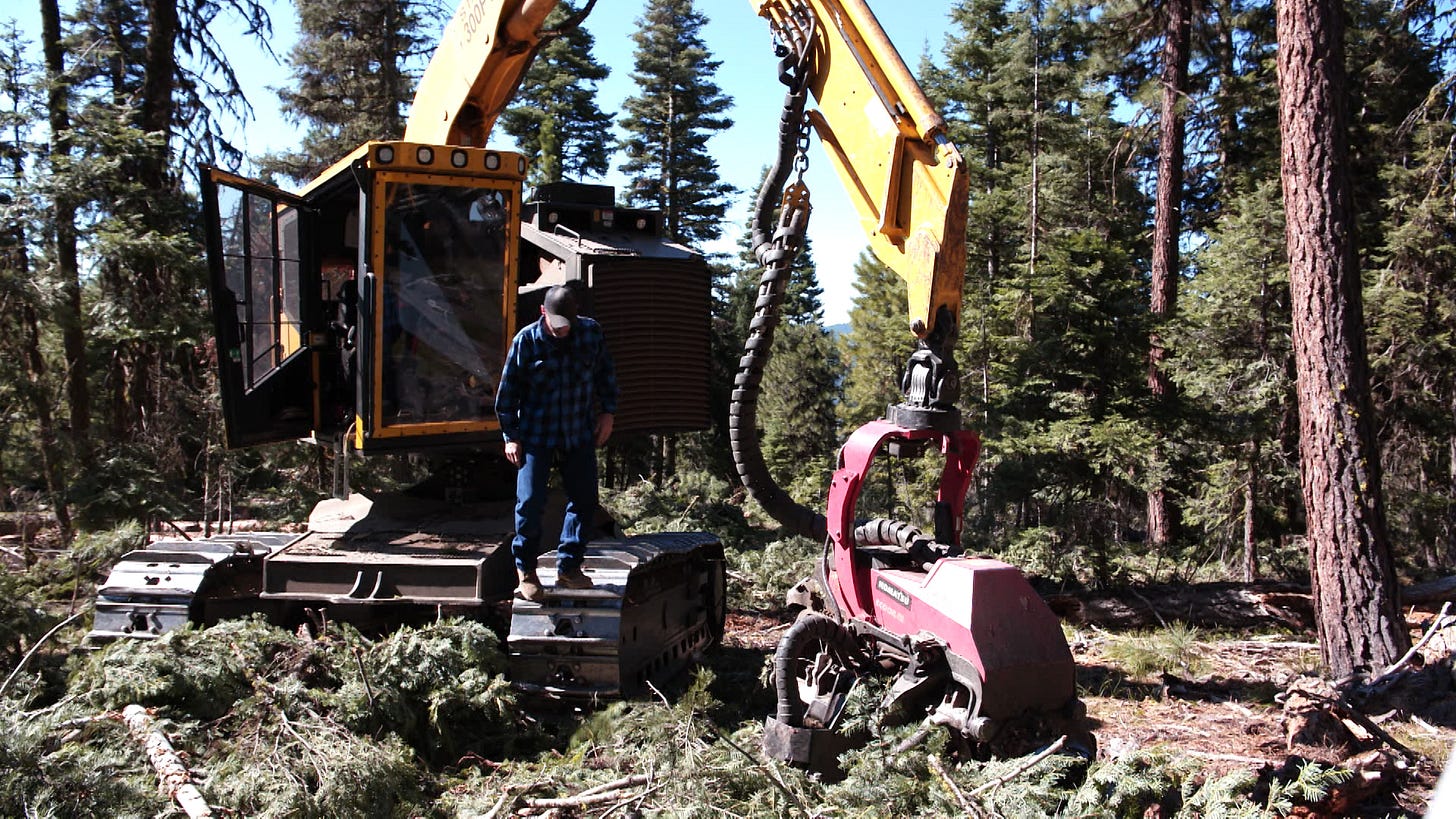As you may know, paid subscribers to this newsletter helped to support this wonderful organization, Maryland-based Old Growth Forest Network. (Each season, we donate 30% of paid subscriptions to a worthy environmental cause. Track past and current recipients here.)
The other day, I received a newsletter from them with three ways to take action to protect our precious forests. I’ve been appreciating information like this, detailing clear ways to join with other concerned folks repairing relationships with the living world. So I decided to share their newsletter in its entirety. See if anything here calls to you. 💚
Thank you for speaking up for our forests!
Executive Orders Expanding Logging
The President recently issued two executive orders that seek to dramatically increase logging in National Forests under the guise of national security issues. These orders direct agency officials to find ways to speed up logging projects by undermining review processes and bypassing long-standing environmental policies like the National Environmental Policy Act and Endangered Species Act.
Learn more about these Executive Orders in a writeup by the Natural Resources Defense Council.
What can you do?
Make some noise about how our national forests are not for exploitation and must maintain uses and values beyond timber. These policies directly harm our forests and strip away conservation progress for our public lands that has been made over decades.
Share your objections to these orders with your communities.
Write opinion letters to your local papers.
Sign petitions that come across your inbox.
Call your representatives to let them know our forests are worth more standing.
Fix Our Forests Act
The “Fix Our Forests Act”—which has already passed the House and will soon be up for vote by the Senate — is framed as expediting forest management activities to mitigate wildfires but contains issues that would undermine important existing protections for forests. Though wildfire risks for people are increasing with climate change and this complex, lengthy bill does provide some steps toward programs that protect communities from wildfire, parts of this bill may open the door for more harm than good. The issues within the version of the bill that has passed the House are:
Allowing the review of project impacts after completion instead of before (as is currently required by the National Environmental Policy Act) and increasing the size of forest areas excluded from important reviews from 3,000 to up to 10,000 acres
Exempting the US Forest Service and Bureau of Land Management from consultation and review of their management plans when new endangered species are listed or critical habitat is defined, required by the Endangered Species Act
Weakening legal accountability when agencies violate environmental laws and regulations, including shortening the window for filing lawsuits to just 120 days
Better approaches are possible and other legislation addressing ways for communities to protect themselves from wildfire, including the Community Protection and Wildfire Resilience Act, can be supported.
What can you do?
Call your Senators today to let them know the potential for harm contained in the current version of the Fix Our Forests Act and that the issues listed above need to be removed. There is a Senate Agriculture Committee hearing today (March 6) for this bill.
Find your Senators’ contact info here.
The Northwest Forest Plan: Comment by March 17th
For 30 years, the Northwest Forest Plan has safeguarded many of our largest intact old-growth forests in the Pacific Northwest while providing a global model for landscape-scale ecosystem conservation and improving salmon habitat and water quality. This plan is up for revision and you have the opportunity to weigh in on it through a public comment period. Not only is this a good opportunity to express your support for the core principles of biodiversity preservation within this plan, but also to urge the Forest Service to expand the network of forest reserves and allow more mature forests to age into protected old-growth.
Even if you only have time to submit just a few sentences, your comments count!
What can you do?
Participate in the public comment period through the US Forest Service’s online comment portal. The Forest Service counts and reads all comments sent. Let them know how important it is to continue protecting old-growth while expanding these protections to more forests to allow them to become old-growth.
Oregon Wild has talking points and a webinar to help guide you as you write a comment.
The last day to submit a comment is March 17th.
Thank you for speaking up for our forests!
Paid subscribers are currently supporting the Center for Humans and Nature, where they explore what it means to be human in an interconnected world. Join us!









Comment submitted! Thank you for highlighting this opportunity to speak up.
Omg - hands off the trees - grrr. Thank you for sharing this news and these tips.